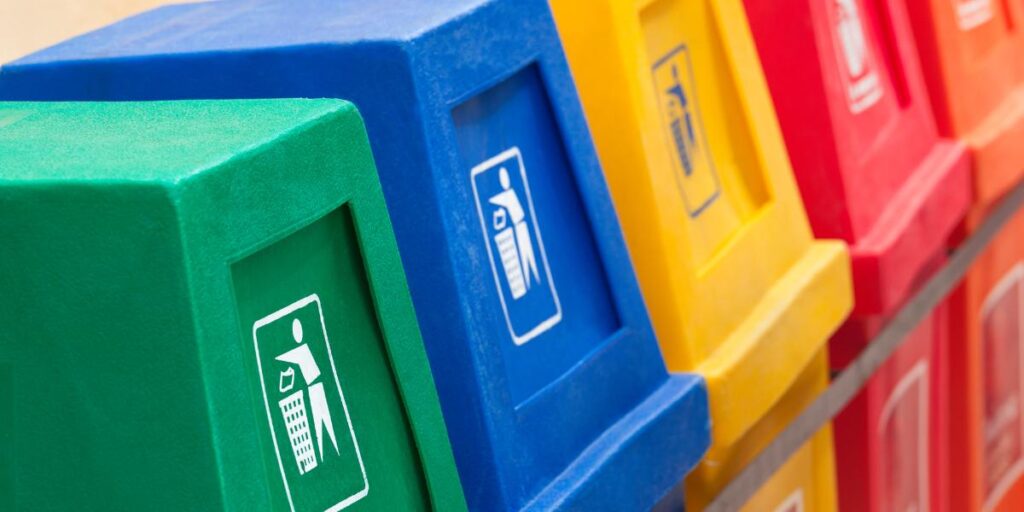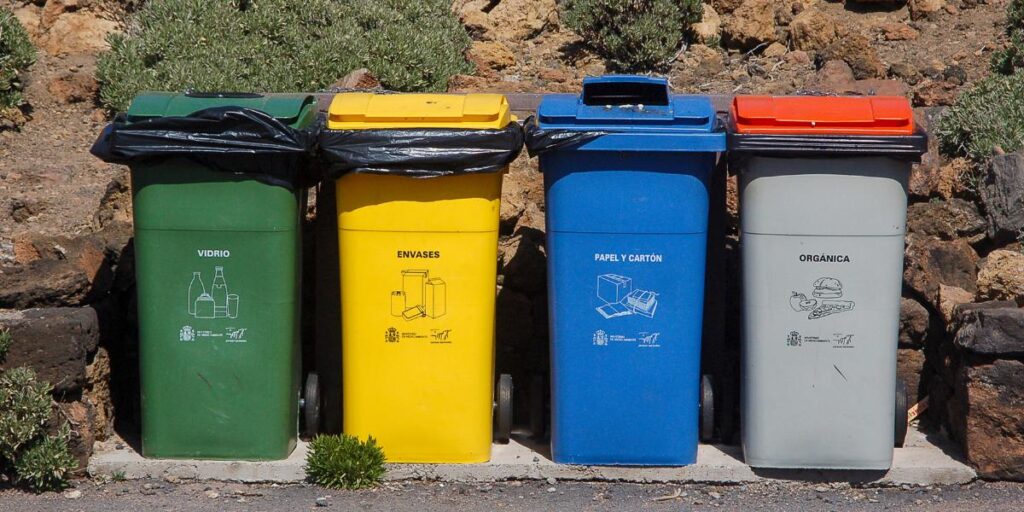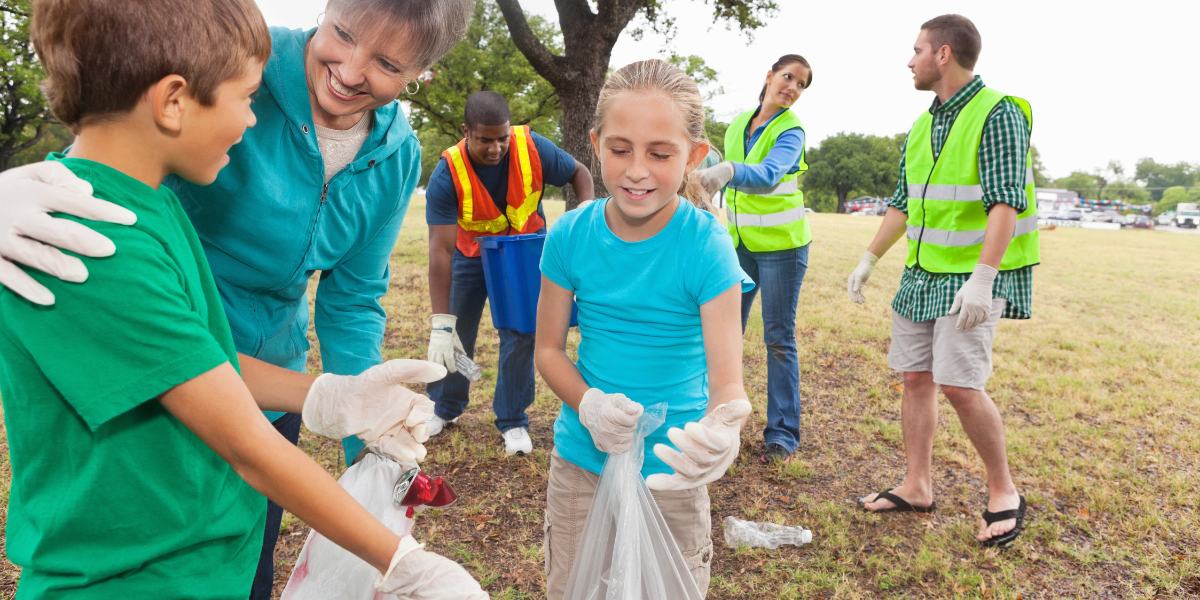Maintaining clean and healthy neighborhoods is crucial, and one of the most effective ways to do this is by managing our waste properly.
Responsible waste disposal keeps our environment free of pollutants, enhances the beauty of our surroundings, and fosters a sense of community pride.
In this blog, we’ll explore how you can actively promote proper waste disposal practices in your neighborhood, transforming it into a cleaner, safer, and more eco-friendly place for everyone to enjoy.
Educating Your Neighbors
A key element in encouraging effective waste management is education.
The more informed your neighbors are about proper disposal practices, the more likely they are to take responsibility.
Organizing workshops or community events can be a fun and informative way to spread the message. For more insights into how we handle hazardous waste and recycling, visit our Hazardous Waste Disposal and Green Waste Yard Debris Removal pages.
These gatherings can cover practical topics such as:
- Recycling: Inform your neighbors about recyclable materials such as paper, glass, and plastics. Offer insights into the recycling process and emphasize how turning old items into new products helps the environment.
- Composting: Describe composting as a way to turn organic waste like food scraps and yard trimmings into nutrient-dense soil for gardening. Demonstrate how easy it is to set up a compost bin at home, inspiring others to embrace this eco-friendly practice.
- Hazardous Waste Disposal: Educate your community on the proper disposal of hazardous materials such as batteries, electronics, chemicals, and paint, which can be harmful if they end up in regular landfills. You could also use these events to discuss the consequences of poor waste management, such as:
- Environmental Pollution: When waste isn’t disposed of properly, it often ends up in oceans, rivers, or landfills, causing pollution and contributing to the destruction of wildlife habitats.
- Health Risks: Accumulation of waste can attract pests and rodents, which can spread diseases. Poor waste disposal can also lead to water and soil contamination, which poses serious health risks to humans.
By raising awareness, you’re not only encouraging responsible waste management but also helping your community understand the broader impact of their actions on the environment and public health.
Setting Up Convenient Recycling Stations
Providing easy access to recycling is one of the simplest ways to encourage responsible disposal practices.
Setting up designated recycling spots in various locations throughout the neighborhood gives residents a convenient place to drop off their recyclable materials. If you need bins for your area, check out our Dumpster Rental Services for options.
Consider these key factors when setting up recycling zones:
- Strategic Placement: Choose high-traffic areas like near mailboxes, community parks, or near entrances of apartment complexes where people frequently pass by. This ensures convenience and increases the likelihood that residents will use the bins.
- Clear Signage: Use clear and visible signage to label what can and cannot be recycled. Signs can help avoid confusion and contamination of recycling streams, making the process more effective.
- Bin Maintenance: Recycling bins should be emptied regularly to avoid overflow, which could discourage people from recycling and lead to littering.
Offering both regular waste bins and recycling bins side by side in these locations encourages residents to make a conscious choice to separate their recyclables from their trash.

Organizing Community Clean-Up Events
Hosting regular clean-up events can be a powerful way to bring people together and instill a sense of responsibility for the neighborhood’s upkeep. For assistance with large-scale waste removal, consider our Junk Removal Services.
These events allow residents to work side by side to enhance the cleanliness and beauty of their shared spaces.
Consider these ideas to make your clean-up events more impactful:
- Target Areas: Focus on common areas that tend to accumulate trash, such as parks, playgrounds, sidewalks, and streets. These are public spaces where trash often gathers and where improvements can make a noticeable difference.
- Involve Local Schools and Youth Groups: Engaging children and teens in clean-up events can teach them valuable lessons about environmental stewardship and foster a lifelong commitment to keeping their surroundings clean.
- Incorporate Friendly Competitions: Create a fun, competitive element by offering small prizes for those who collect the most trash or find the most recyclable materials. This adds an element of fun and encourages greater participation.
These events not only enhance the neighborhood but also help foster a sense of camaraderie, as residents work together toward a common goal of keeping the area clean and welcoming.

Providing Ample Trash Bins
One of the easiest ways to reduce litter in the neighborhood is by ensuring that there are plenty of trash bins available.
People are more likely to dispose of their waste properly if there are easily accessible bins nearby.
Here are some important points to consider:
- Strategic Placement: Trash bins should be placed in areas where litter is most likely to accumulate, such as bus stops, street corners, playgrounds, and near public benches.
- Regular Maintenance: It’s crucial to keep the trash bins in good condition. Bins should be emptied before they overflow, and they should be cleaned regularly to prevent unpleasant odors and the attraction of pests.
- Bin Durability: Invest in sturdy, weather-resistant bins to ensure they last long and remain functional even in harsh weather conditions.
When trash bins are placed at convenient intervals and are well-maintained, they help significantly reduce the likelihood of litter, keeping public areas clean and enjoyable for everyone.

Launching a Neighborhood Composting Program
Composting is one of the most eco-friendly waste disposal methods available, and it’s something that can easily be implemented at a community level.
Starting a neighborhood composting program not only reduces the amount of organic waste sent to landfills but also provides a valuable resource for gardening.
Here’s how you can get started:
- Provide Education and Resources: Offer workshops on how to start composting at home. Explain the types of materials that can be composted (food scraps, leaves, yard waste) and what should be avoided (meat, dairy, and oils).
- Community Composting Site: If possible, establish a shared composting site in the neighborhood. This could be a designated area where neighbors can drop off their compostable materials if they don’t have the space or desire to compost at home.
- Promote the Benefits: Explain how composting reduces waste, decreases the need for chemical fertilizers, and improves soil health. Emphasizing the positive impact can encourage more people to participate.
By turning organic waste into valuable compost, the neighborhood can promote sustainable waste management practices and support local gardening efforts.
Teaming Up with Local Waste Management Services
Partnering with local waste management companies or municipal services can enhance your neighborhood’s waste disposal efforts.
These professionals can offer a wealth of knowledge and resources to improve the community’s waste management system. For collaboration opportunities, check out our Commercial Trash Collection Services.
Here’s how you can leverage this partnership:
- Access to Resources: Local waste management services may provide recycling bins, composting systems, and educational materials to help your community understand proper waste disposal techniques.
- Expert Advice: Waste management professionals can offer tips on how to reduce waste, dispose of hazardous materials safely, and increase recycling rates.
- Specialized Waste Collection Days: Partnering with waste management services may allow your neighborhood to schedule special waste collection days for bulky items, electronics, or hazardous waste that can’t be picked up during regular trash collection.
Collaborating with these experts ensures that your neighborhood has the tools and knowledge necessary to handle waste efficiently and sustainably.

FAQs:
Why is proper waste disposal important for our community?
Effective waste disposal is essential for sustaining a clean, healthy environment. It minimizes pollution, keeps hazardous materials from landfills, curbs littering, and encourages recycling and composting.
These actions enhance the neighborhood’s safety and appearance while promoting environmental stewardship.
How can I educate my neighbors about waste management?
You can host workshops, community meetings, or neighborhood events focused on waste management topics like recycling, composting, and proper hazardous waste disposal.
You can also distribute flyers, start an online group, or collaborate with local schools to spread awareness.
What materials can be recycled, and what can’t?
Most common recyclable materials include paper, cardboard, glass bottles, aluminum cans, and certain plastics (usually labeled with recycling symbols).
Items like plastic bags, greasy pizza boxes, and some electronics often can’t be recycled in regular bins and may require special disposal methods.
How do I start a composting system in my neighborhood?
Start by educating your community about composting through workshops or informational materials.
Encourage residents to set up their own compost bins at home, or create a community compost site.
Materials like fruit and vegetable scraps, leaves, and yard trimmings can be composted, while meat, dairy, and oily foods should be avoided.
Where should recycling bins and trash bins be placed in the neighborhood?
Place recycling and trash bins in high-traffic areas where people are likely to need them, such as near parks, playgrounds, sidewalks, mailboxes, and bus stops.
The key is to make these bins easily accessible to encourage proper waste disposal.
What should I do if the recycling or trash bins overflow?
Overflowing bins should be reported to local waste management services or handled by the neighborhood association.
Regular emptying and cleaning of the bins is important to prevent littering and pests. Encourage neighbors to notify the community if bins need servicing.
Conclusion
Effective waste management is a shared responsibility that enhances the quality of life for everyone in the community. Through education, collaboration, and the right resources.
We can create a cleaner, healthier, and more sustainable environment.
From setting up recycling stations to organizing community clean-ups and encouraging composting, each step we take brings us closer to a greener, more unified neighborhood.
Let’s continue working together to make our community a better place to live for ourselves and future generations.
